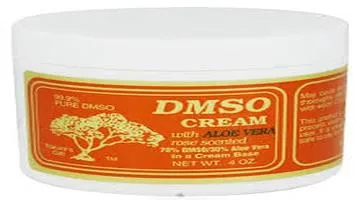Aloe Vera: Nature’s Gift for Health and Beauty
Aloe Vera is a succulent plant species known for its medicinal and cosmetic benefits. Originating from the Arabian Peninsula, it thrives in tropical, semi-tropical, and arid climates around the world. This hardy plant is easily recognizable by its thick, fleshy, green leaves that fan out from a central stem. Each leaf is filled with a clear gel, rich in vitamins, enzymes, amino acids, and antioxidants. Aloe Vera gel is widely used for its soothing and healing properties, particularly in treating skin conditions such as burns, sunburns, and minor cuts. Additionally, the plant's juice is consumed for its potential digestive health benefits. Beyond its therapeutic uses, Aloe Vera is a popular ingredient in skincare and beauty products, valued for its hydrating and rejuvenating effects.

Aloe Vera, often referred to as the "plant of immortality" by ancient Egyptians, has been celebrated for centuries for its remarkable health and beauty benefits. This succulent plant, belonging to the Liliaceae family, is not just a decorative houseplant but a powerhouse of therapeutic properties. Its thick, fleshy leaves contain a gel that is rich in vitamins, minerals, amino acids, and antioxidants, making it a versatile remedy for a myriad of ailments and an essential component in skincare and wellness routines.
One of the most compelling reasons to incorporate Aloe Vera into your health regimen is its proven efficacy in treating skin conditions. The gel extracted from Aloe Vera leaves is renowned for its soothing and healing properties. It is particularly effective in treating burns, including sunburns. The plant’s natural anti-inflammatory and cooling attributes provide immediate relief and promote faster healing by stimulating skin regeneration. Moreover, Aloe Vera gel is a superb moisturizer. Unlike conventional creams and lotions, it hydrates the skin without leaving a greasy residue, making it suitable for all skin types, especially for those with oily or acne-prone skin.
Acne sufferers often turn to Aloe Vera for its anti-inflammatory and antibacterial properties. Applying Aloe Vera gel to acne-prone areas can reduce redness, swelling, and even the frequency of breakouts. The plant’s astringent properties help to cleanse pores and remove excess oil, which are common culprits in acne development. Furthermore, Aloe Vera contains salicylic acid, a compound known for its ability to exfoliate the skin and unclog pores. Regular use of Aloe Vera can thus lead to clearer, healthier skin.
Aloe Vera’s benefits are not limited to external applications; the plant also offers a host of internal health benefits. Aloe Vera juice, made from the inner leaf gel, is a popular health tonic. It is packed with vitamins such as A, C, and E, which are crucial for boosting the immune system. Additionally, it contains B12, folic acid, and choline, which support overall body function. Drinking Aloe Vera juice can aid in digestion by normalizing acid/alkaline balance, reducing yeast formation, and encouraging healthy bowel movements. Its detoxifying properties help cleanse the digestive tract, potentially alleviating conditions such as irritable bowel syndrome (IBS) and acid reflux.
One of the lesser-known yet significant benefits of Aloe Vera is its potential to regulate blood sugar levels. Preliminary studies suggest that consuming Aloe Vera juice can improve blood glucose levels and may be beneficial for individuals with type 2 diabetes. The plant contains compounds like lectins, mannans, and anthraquinones, which contribute to its hypoglycemic properties. However, it is essential to consult a healthcare provider before incorporating Aloe Vera into a diabetes management plan, as more research is needed in this area.
Aloe Vera is also celebrated for its role in oral health. Aloe Vera-based tooth gels are effective in reducing plaque and improving overall dental hygiene. The antibacterial properties of Aloe Vera help combat the bacteria responsible for plaque buildup, while its anti-inflammatory effects can soothe gum inflammation. For those suffering from mouth ulcers or canker sores, applying Aloe Vera gel can expedite healing and reduce pain.
Hair care is another domain where Aloe Vera shines. The plant’s enzymes can help remove dead cells from the scalp, promoting hair growth and preventing dandruff. Aloe Vera acts as a great conditioner, leaving the hair smooth and shiny. Its moisturizing properties can also help to repair dry and damaged hair, making it a popular ingredient in shampoos and conditioners.
Despite its myriad benefits, it is essential to exercise caution when using Aloe Vera, especially for internal consumption. The latex found just under the plant’s skin can cause stomach cramps and diarrhea if ingested in large quantities. Always ensure that you are using pure Aloe Vera gel or juice, free from additives and preservatives, to avoid adverse reactions. Additionally, while topical application is generally safe, it is advisable to conduct a patch test before widespread use to rule out any allergic reactions.
In conclusion, Aloe Vera stands out as a versatile and invaluable addition to both health and beauty routines. Its rich nutrient profile and therapeutic properties make it a natural remedy for a wide range of conditions, from skin ailments to digestive issues. As with any natural remedy, it is crucial to use Aloe Vera responsibly and be mindful of any potential side effects. With its impressive array of benefits, Aloe Vera truly deserves its place as a staple in natural health and wellness practices.






